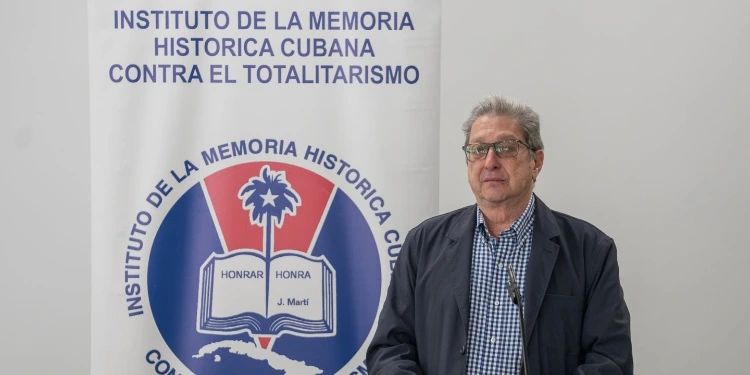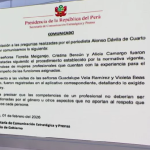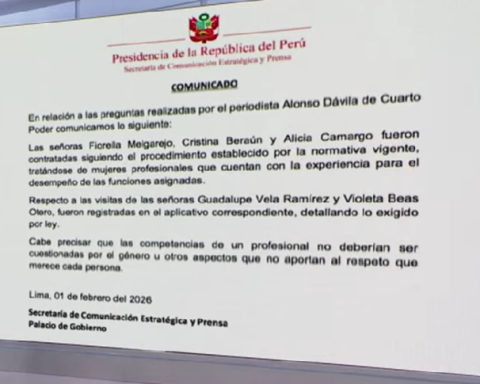PUERTO PADRE, Cuba.- This Sunday, the Institute of Cuban Historical Memory against Totalitarianism turns 25 years old. Founded on September 29, 1999, in the more than 65 years of totalitarian dictatorship that have already passed in Cuba, it is a quarter of a century of work and efforts in the face of the “forgetting” and vilification of national history by the Castro-communist regime.
Unfortunately, this crime is already with the complicity of too many Cubans, reduced to the status of “volunteers”, which colonial Cubans, as in other times and circumstances but for the same motives – the homeland negligence translated as utilitarian apostasy – José Martí would call them, and it does not matter if they acted or act by action or omission, because, due to its results, collusion also involves the crime against humanity for cruel and inhuman treatment of the civilian population, and not only for death, prison, exile and the captive peoples, all Cubans, but also for the destruction of folklore and national history.
“If you don’t know where you are going, go back, so that you remember where you came from,” says the Hindu proverb, and those who founded the Institutewho themselves suffered persecution and the horrors of political imprisonment in Cuba, trying to fulfill that apothegm have brought us – so that we remember where we come from – the historical facts that they hid or distorted from us, because without history there is no nation, no people, no country, but in Aristotelian words, a mere “lot of people”, as Cuba is today.
Abolic, civically crushed or, due to trifles between Cubans, in a perennial vociferous brawl, without moral principles, transformed cubanidad and the Cuban in rabble and in illicit businesses that constitute mafias, cowardly avoiding the costs of freedom, they prefer bribes and the extravagance of perks, regardless of whether they end up in jail.
To prison, yes, for being a thief, or for being corrupt, but… Oh, not for counterrevolutionaries! Thus transforming a nation that was in its infancy, industrious, productive, poor, but honest, into a village of riff-raff led against those who have carried the country in them, regardless of the consequences, very harsh, for the few who had the courage to confront the totalitarian regime, when millions were beaten and applauded. Oh yes. Sad. But that is the Cuba that touches us investigate to write your story.
Because if in a tangible, legal way, Castro’s totalitarianism in Cuba begins to be cemented as early as January 7, 1959, when the first constitutional reform removed the Judicial Branch, thus paving the way for the sadly remembered “revolutionary courts,” and By February 7, the Constitution of 1940 was reformulated to suit the legal requirements of the “revolutionary State”, calling it the Fundamental Law. The truth is that, from the historical, psychological and sociological point of view, for a long time before, those who came observing the personality of Fidel Castrothey realized that there was in him a dictator in the making, accumulating absolute power.
As we have pointed out on other occasions, totalitarian communist dictatorships are supported by an ideology that aims to be millenarian and universal, with a single party, led by a dictator supported by a political bureau, which are supported by a system of physical and psychological terror, which is led by the communist party, but is exercised by the political police, sometimes exercising “legal” jurisdiction and other times brute force, over the public administration and all the powers of the Stateand, certainly, leaving the citizen at an absolute disadvantage in the face of a totalitarian regime that not only controls inspectors, police and judges, but also all weapons, even compressed air weapons, the press, radio, cinema, television, the internet and, particularly and in a centralized way, absolutely the entire economy, starting from this circumstance, by simulation, the very special class of “revolutionary criminals”, which today we can see throughout the United States and not only in Cuba.
The death of Raúl Castro, real head of the Castro-communist regime, will not necessarily mean the fall of the dictatorship. This is based not on a person, but on the communist party. Having taken over all the powers of the State, and not only the executive, legislative and judicial powers, but also – sometimes pruning and other times cutting deep roots – of what was once called “living classes”, that is, the students of universities, business associations, unions, liberal professions (lawyers, journalists and professionals in the arts and thought), women and the entire citizenry, thus, with such emasculation, the totalitarian dictatorship has reduced the national tree to a mere bonsai.
In any case, the death of Raúl Castro, as a historical fact, with social and psychological connotations for all parties, for and against, will mark the beginning of the end of the totalitarianism communist in Cuba, because it was politically and economically ineffective. And when that moment comes, the Institute of Cuban Historical Memory against Totalitarianism, which is now celebrating 25 years in exile, must have a chair in Cuba, for the simple and simple reason that the problem of Cuba and Cubans is not to change of government and political system, but the challenge is to transform a town of automatons, yes, of mannequins, into a nation of free men and women.
But we Cubans will never achieve that supreme human category, that of personal and national freedom, without the teaching of History, because as the proverb says, “if you don’t know where you are going, return, so that you remember where you came from.” . And we will still be in the shackles of totalitarianism, without knowing what freedom is, if we do not return to know that we come from a democracy transformed into a dictatorship.

















